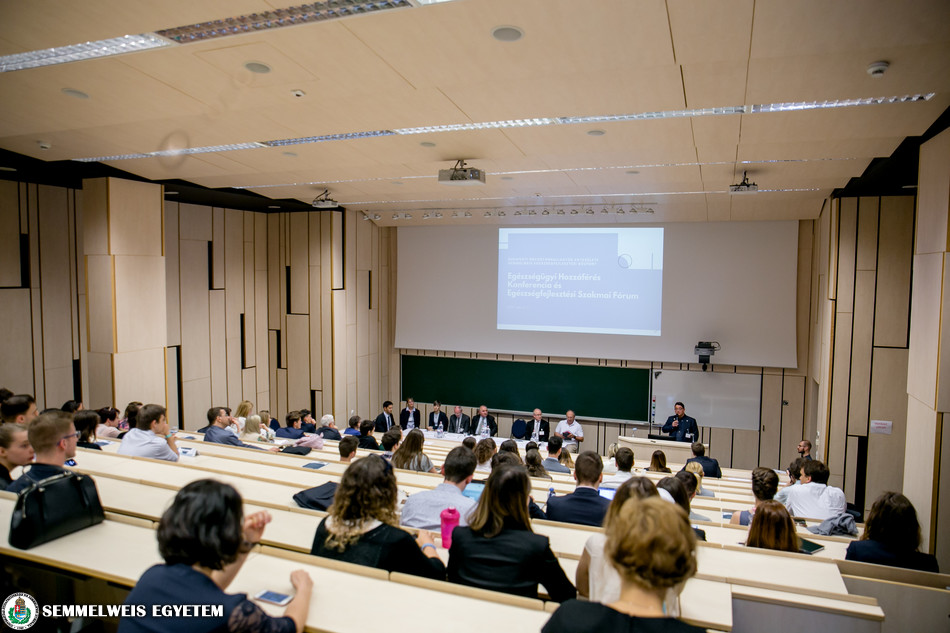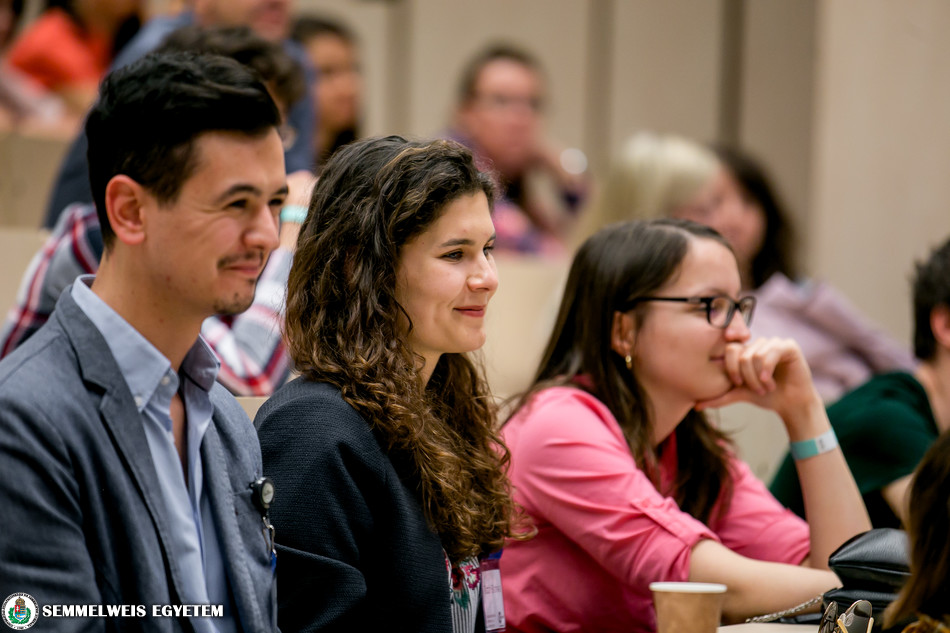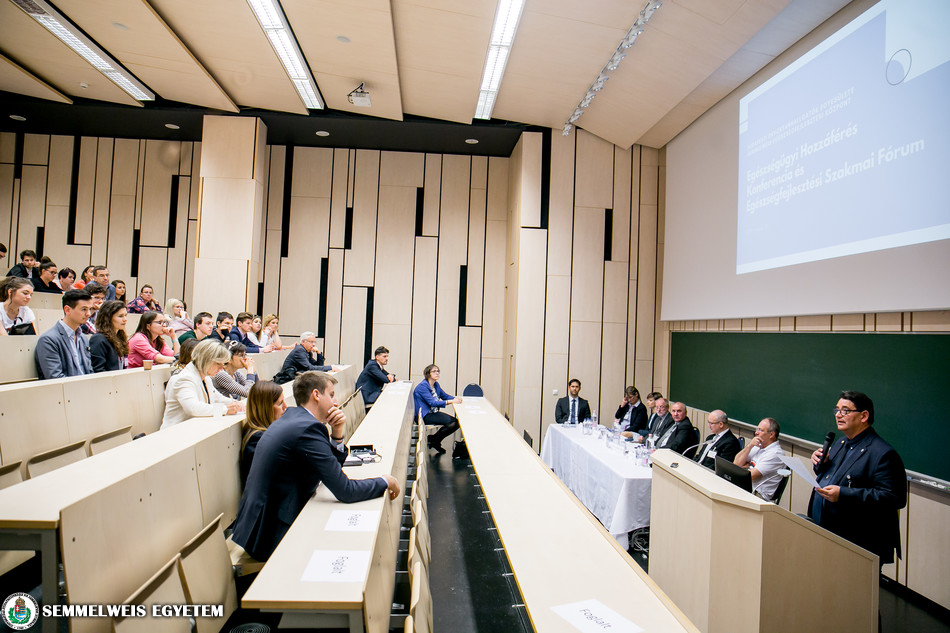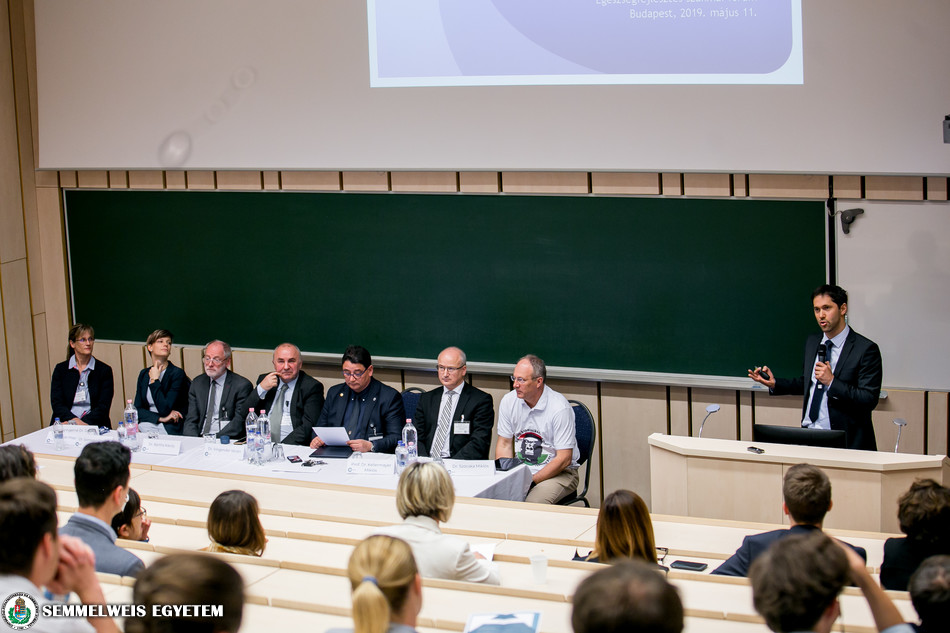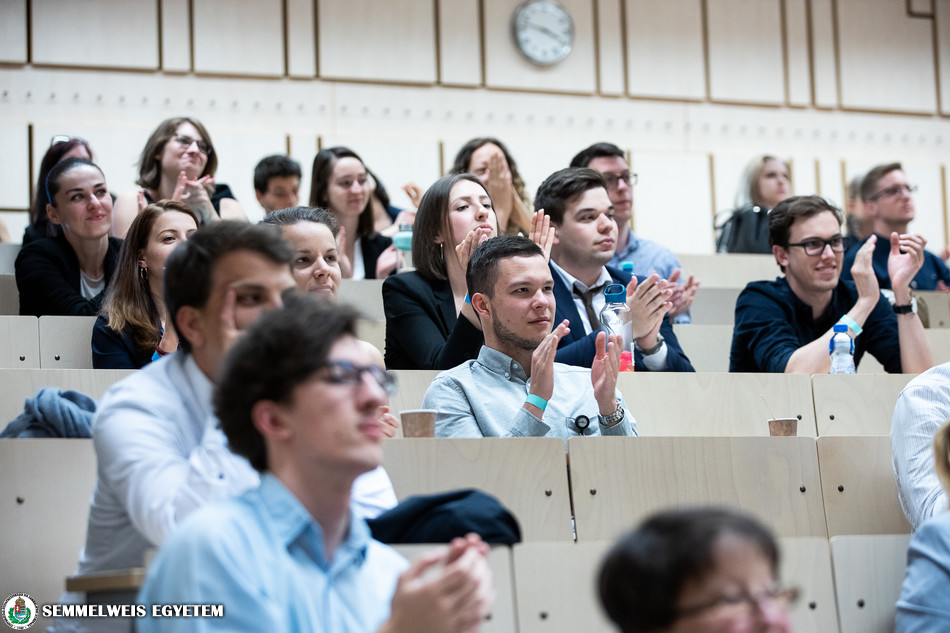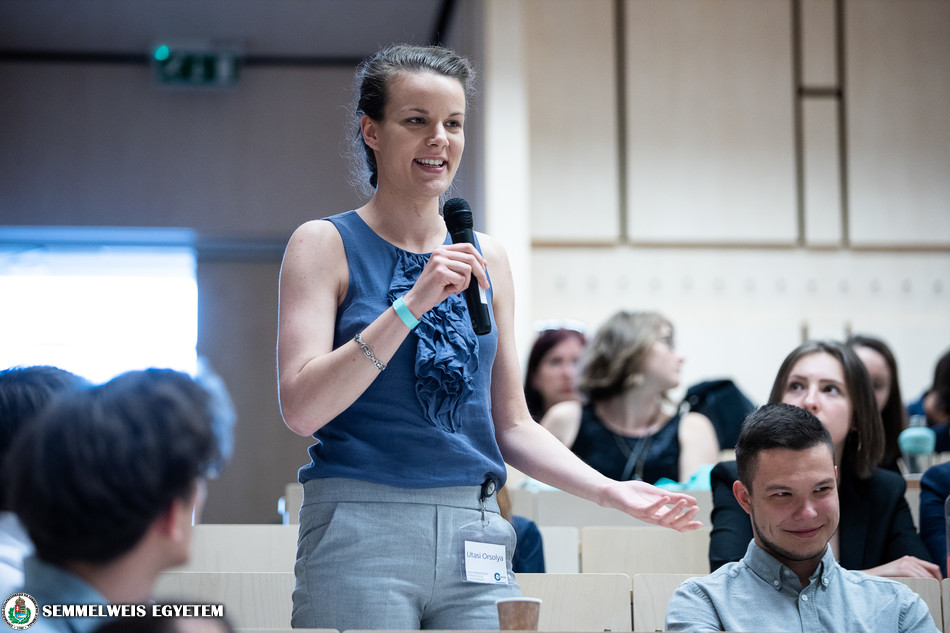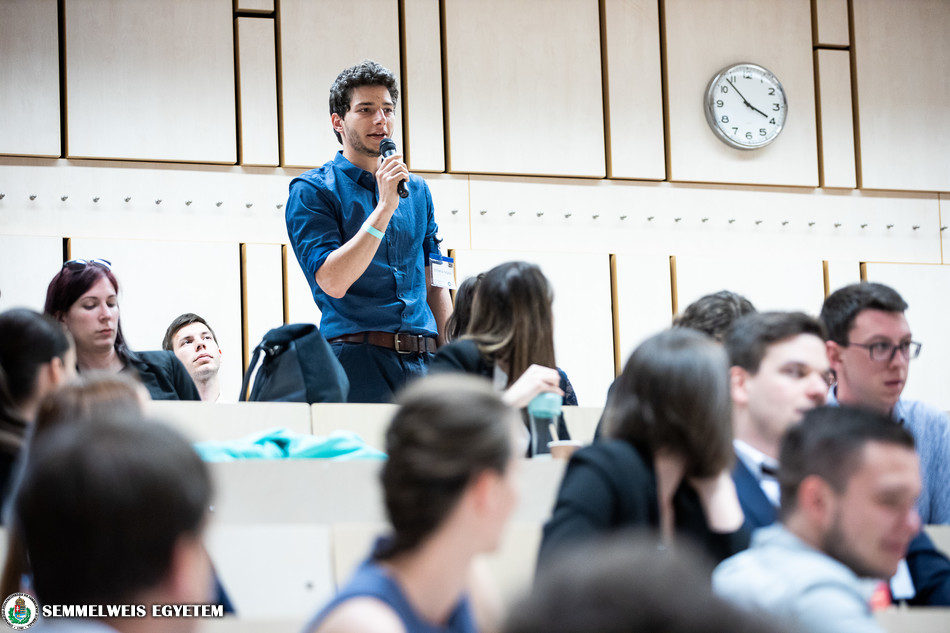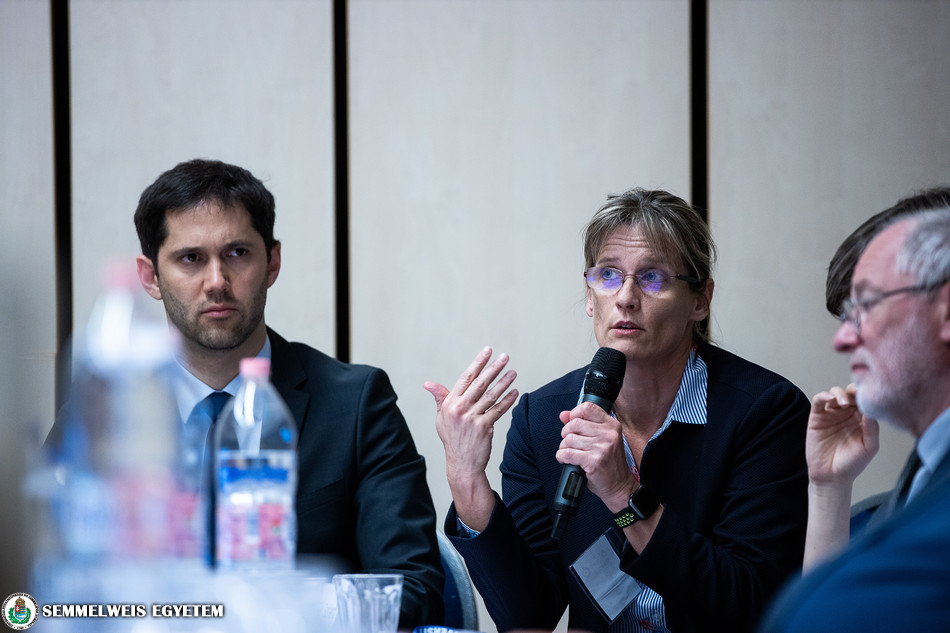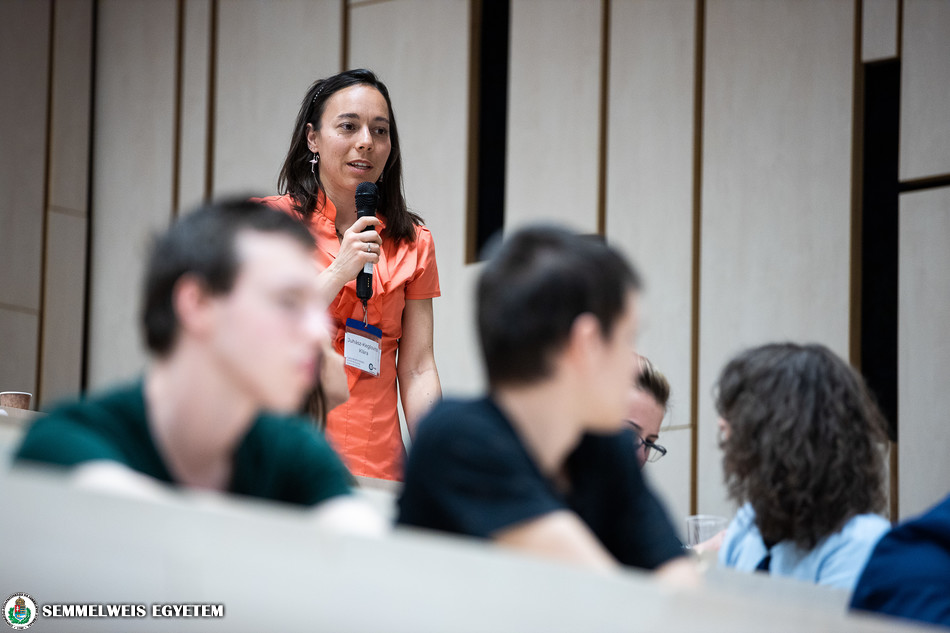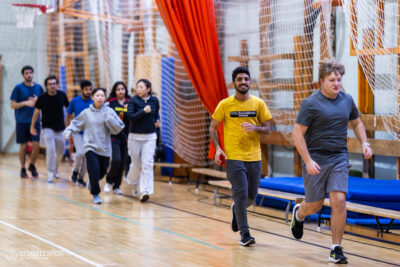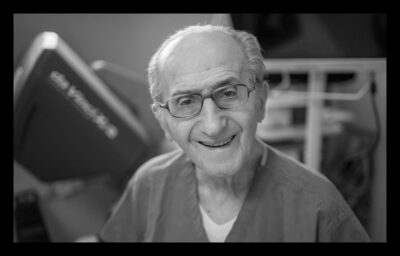Medical students that perform health development or screening activities in the framework of their studies will receive study credits in return starting this autumn, announced rector Dr. Béla Merkely at the Health Care Access conference and health development professional forum, which was organized jointly by the Semmelweis Health Development Center and the Budapest Medical Students’ Association. The recently established Semmelweis Health Development Center introduced itself at the event, while each faculty presented the health prevention-related aspects of their education activities and their development plans were also discussed.
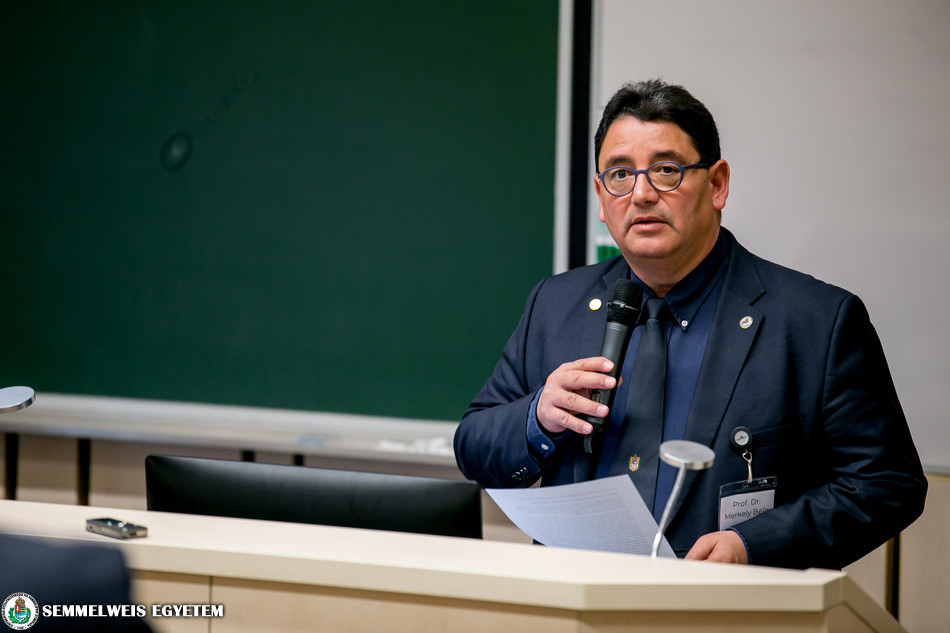 In his greeting remarks, Dr. Béla Merkely stressed that one of the elements of renewing medical education is establishing an attitude that focuses on prevention. The goal is for medical students to gain experience during the course of their training in holding screenings for the public and teaching a healthy lifestyle, and thus save lives by also building on prevention, similar to how the university’s namesake worked, the rector noted. In order to reach this objective, as part of the curriculum reform starting in the fall, students will receive 2 study credits for performing health development or screening activities in the framework of their studies, he announced. He added that it is also the university’s task to teach students to be healthy, therefore another important element of the curriculum reform is that as of September, physical education will be introduced as a separate class on every faculty and for every year.
In his greeting remarks, Dr. Béla Merkely stressed that one of the elements of renewing medical education is establishing an attitude that focuses on prevention. The goal is for medical students to gain experience during the course of their training in holding screenings for the public and teaching a healthy lifestyle, and thus save lives by also building on prevention, similar to how the university’s namesake worked, the rector noted. In order to reach this objective, as part of the curriculum reform starting in the fall, students will receive 2 study credits for performing health development or screening activities in the framework of their studies, he announced. He added that it is also the university’s task to teach students to be healthy, therefore another important element of the curriculum reform is that as of September, physical education will be introduced as a separate class on every faculty and for every year.
The university’s Senate established the Semmelweis Health Development Center in order to create the modern organizational framework of health prevention, Dr. Béla Merkely pointed out. The task of the center will be, among others, to harmonize the related education and research activities across the various faculties, as well as to launch corporate social responsibility programs.
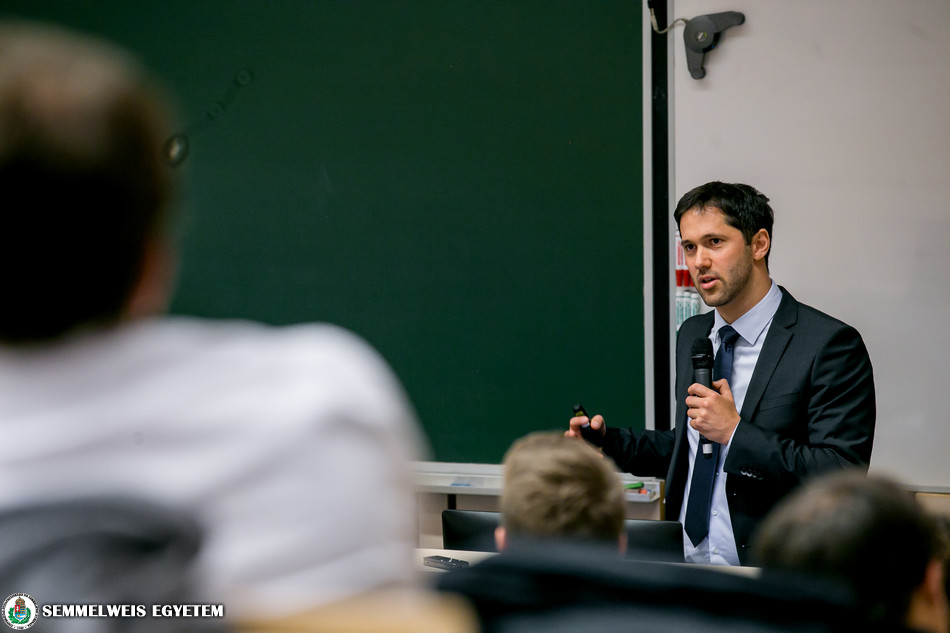 Dr. Magor Papp, the director of the Semmelweis Health Development Center, said that the objective is to present good practices to Hungarians and citizens of the university which help to increase the number of years they live healthy. At Semmelweis University, as the country’s first health development university, a healthy lifestyle may become part of everyday life for every university student and citizen, which could also contribute to improving the state of health of Hungarians in general. Among additional objectives, Dr. Magor Papp noted the publication of a health development booklet aimed at laypeople, conducting health checkups at the university, organizing conferences and providing methodological support for screenings. “Health prevention is for everyone, regardless of age, gender or socio-economic situation,” he said.
Dr. Magor Papp, the director of the Semmelweis Health Development Center, said that the objective is to present good practices to Hungarians and citizens of the university which help to increase the number of years they live healthy. At Semmelweis University, as the country’s first health development university, a healthy lifestyle may become part of everyday life for every university student and citizen, which could also contribute to improving the state of health of Hungarians in general. Among additional objectives, Dr. Magor Papp noted the publication of a health development booklet aimed at laypeople, conducting health checkups at the university, organizing conferences and providing methodological support for screenings. “Health prevention is for everyone, regardless of age, gender or socio-economic situation,” he said.
As part of the professional forum, the faculties of Semmelweis University presented their activities relating to health prevention, as well as how they take part in it. Dr. Miklós Kellermayer, the dean-elect of the Faculty of Medicine (ÁOK), declared that an athletic lifestyle, a healthy diet, harmonious relations with others, and lifelong goals and motivations are what constitute health. With regard to the changing curriculum, he noted that in addition to Phys Ed becoming a mandatory class for the full six years, instead of only in the first two, a new medical-oriented class, sports medicine will also be introduced. Relating to healthy eating, he said that students need to have basic ecological knowledge as well, and the goal is for a general practitioner to be able to make independent decisions and think critically. This is aided by six basic classes: focused anatomy, which will be reduced to three semesters from September, two semesters of physiology, two semesters of biochemistry, pathology from the third year, followed by pharmacology, then internal medicine and related professions.
Representing the Faculty of Health and Public Administration (EKK), current vice-dean and dean-elect Dr. Miklós Szócska noted that figures on morbidity and illnesses lead back to lifestyle almost everywhere in the world. He said that network research and other new methods can help in understanding public health behavior, with the faculty can also complement with its own tools and methods. He also added that shaping the attitudes of international students is also an important task.
Dr. István Vingender, vice-dean of the Faculty of Health Sciences (ETK), said that health development is relevant in three areas at their faculty: the substance of education, the conditions of everyday life, and the psychosocial status of students. “Our wide education portfolio in itself predestines us to grant space for health development,” he noted. One unique aspect of the faculty is that half of its students study in addition to working, so they can immediately put into practice what they learn. They also offer a class of preventive health education, while students also take part often in volunteer work, added Dr. István Vingender.
Dr. Károly Bartha, vice-dean of the Faculty of Dentistry (FOK) emphasized that students learned preventive practices at the faculty already in the 1980s, while preventive dentistry has been taught since 1996. During the 2014/15 academic year, general prevention was separated from the topics of tooth decay and oral hygiene.
Representing the Faculty of Pharmaceutical Sciences (GYTK), Dr. Orsolya Somogyi, an assistant lecturer at the University Pharmacy Department of Pharmacy Administration, presented several pilot projects that were organized as a part of postgraduate training. These included topics such as the health understanding of patients and the development of pharmacists’ communication skills, and health planning with the help of health advisory software. Dr. Orsolya Somogyi said the faculty plans to increase practice-oriented skills in undergraduate training, and the goal of specialist projects is developing these methodologies.
Dr. Zsuzsanna Szilárd, a college professor at the Institute of Human Sciences, representing the András Pető Faculty (PAK), noted that they held a competition on the healthiest class in 2017, during which they assessed the health status of students and organized various sports events for them. She added that they plan to launch a health prevention workshop, which may include other faculties as well.
Eszter Keresztes
Translation: Tamás Deme
Photo: Attila Kovács – Semmelweis University, Gábor Ancsin
